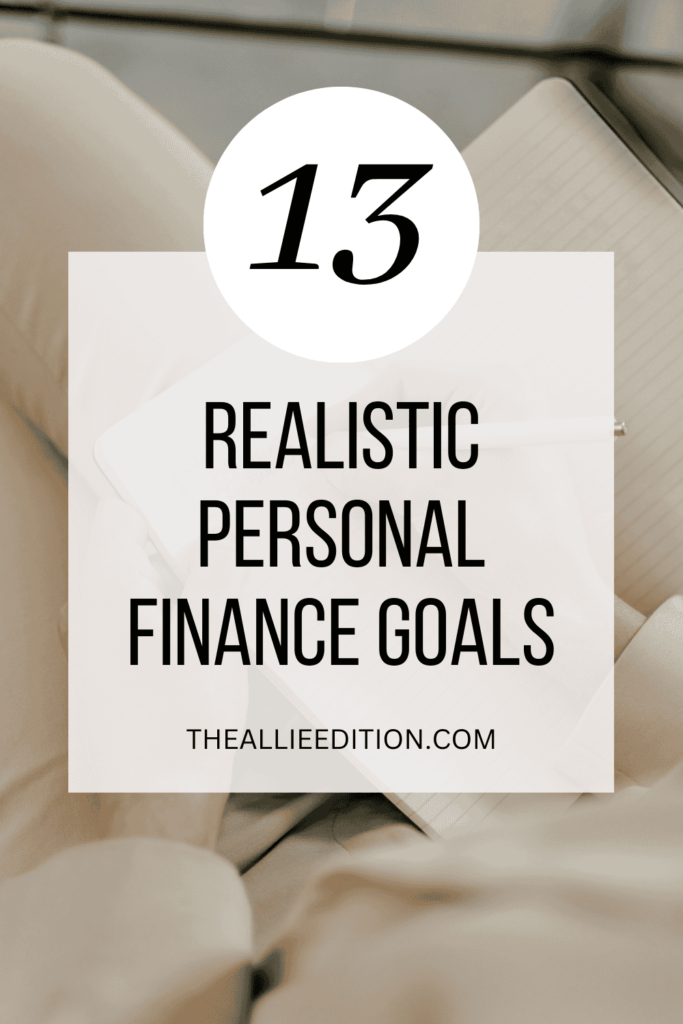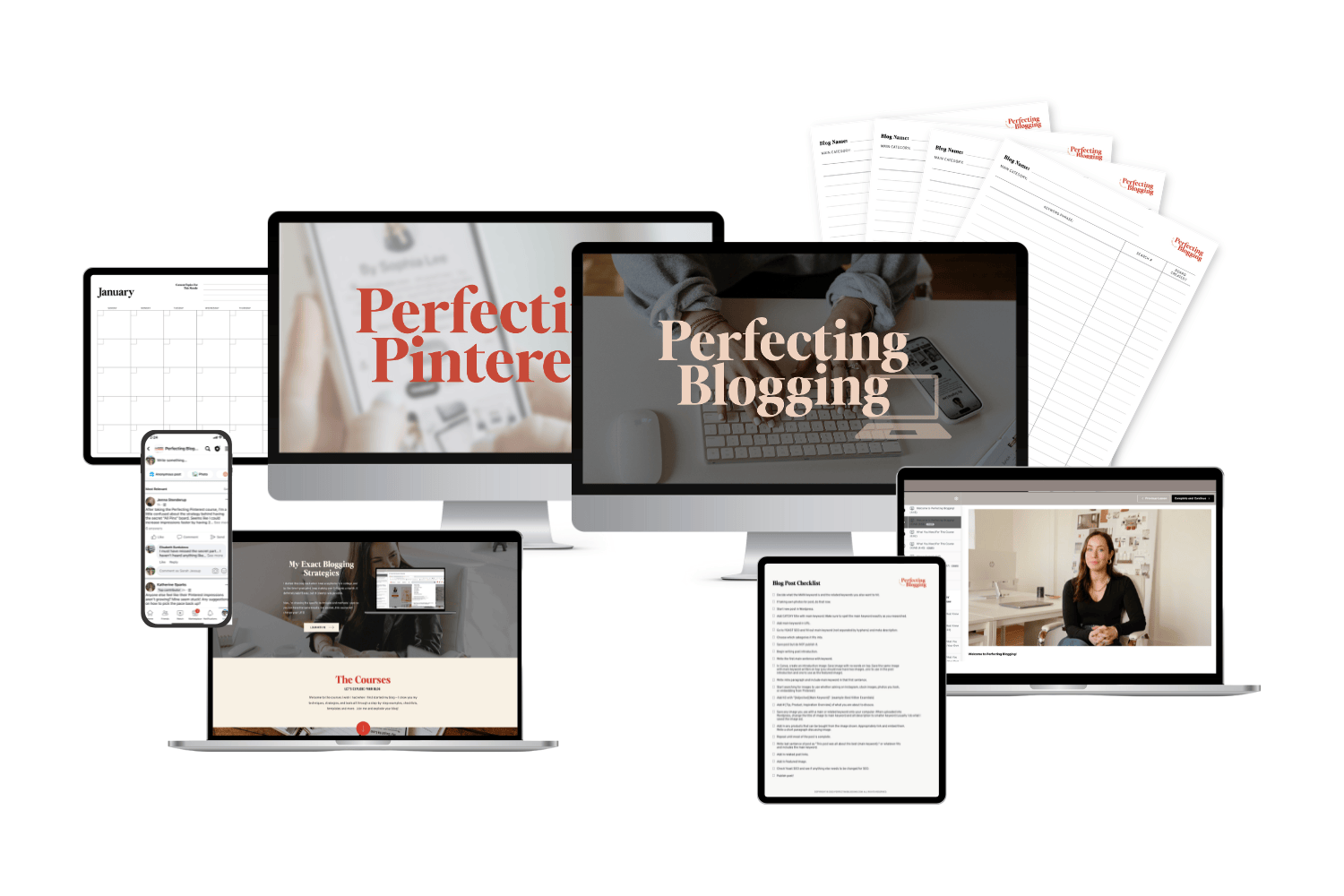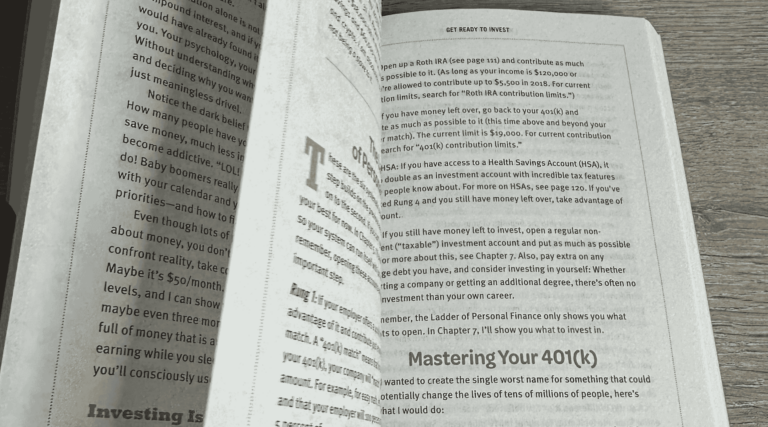13 Realistic Personal Finance Goals to Crush Your Savings
This site contains affiliate links, view the disclaimer for more information.
In this post, I’m sharing 13 realistic personal finance goals that will keep you motivated this year to stay on track with your money saving plan.

Welcome to part 4 of 10 in my personal finance blog series, where we dive into how a money saving plan can be your key to successfully transitioning from debt to savings. If you’re just joining us, be sure to check out the first post for a deeper dive into why a money saving plan is so crucial. It’ll lay the foundation for everything we’re discussing moving forward.
Maybe you’ve tried setting financial goals before, but they felt overwhelming, unrealistic, or too hard to stick with—leading to burnout or frustration. The problem isn’t you; it’s the approach. When your goals aren’t personalized or achievable, they can feel impossible to reach. But here’s the good news: with the right strategy, you can create goals that keep you motivated and actually work for your lifestyle.
In this post, I’m sharing 13 realistic personal finance goals that will help you build savings, improve your financial health (and in my case, mental sanity, ha!), and finally feel in control of your money. Let’s dive in!
13 Personal Finance Goals to Keep You Motivated
1. Organize Your Finances (So You’re Ready for Tax Season!)
If you’re ready to get serious about saving money and hitting your personal finance goals, the perfect way to start is by organizing your finances. Getting everything in order now makes it easier to stay on track and ultimately achieve your other finance goals.
One of the biggest benefits? Tax season becomes way less stressful because all your tax documents and finances are already laid out for you. Beyond that, having your finances organized makes it easier for a partner or family member to step in if you’re ever on medical leave or unable to manage your finances. It’s something no one likes to think about, but being prepared ensures peace of mind for you and your loved ones. Start with these five simple best practices to get your personal finances in order today!
2. Stick to Your Monthly Budget (For a Set Timeframe!)
Setting a budget is one thing—but sticking to it is where the real challenge comes in. To make this goal specific and measurable, set a clear timeframe, like sticking to your budget for three months. This way, you’re giving yourself a structured challenge without feeling overwhelmed.
Think of it like starting a new fitness routine. You wouldn’t jump into 5 days of intense workouts right away. Instead, you’d ease in gradually—and the same goes for budgeting. Only having to commit for short periods at a time helps you build the habit and adjust as needed. Consider getting a personal budget planner to keep organized and easily track your progress each month.
3. Commit to Your Money Saving Plan (We’re Saving Money This Year!)
One of the biggest reasons people struggle to save money is that they never fully commit to a clear, personalized saving plan. If you’ve followed my step-by-step guide to creating a savings plan, you already know how important it is to make it realistic and tailored to your financial situation.
Now, the key is sticking with it. Just like with budgeting, set a defined period to track your progress—for example: “I will commit to my savings plan for 3 months, then assess what’s working and what needs adjusting.” This approach keeps you accountable while giving you the flexibility to tweak your plan so you don’t get burnt out.
Find Smart Tools to Budget Better, Save More, and Work From Anywhere
Ready to make life (and money management) a little easier? Check out my favorite tools, books, and essentials for budgeting smarter, building real savings, organizing your home office, and thriving in remote work—so you can create the flexible lifestyle you’re working toward.
4. Pay Off Debt (Starting with High-Interest First!)
Paying off debt is one of the most common personal finance goals, but where do you even start? To make it realistic and attainable, begin by tackling high-interest debt first—like credit cards or personal loans.
Feeling overwhelmed? Another strategy is to start small: Pay off a lower balance first (maybe a $500 credit card or a $2,000 loan). This creates a quick win and builds momentum. Then, move on to the high-interest balances, which will save you money in the long run by cutting down on interest payments.
5. Build & Maintain an Emergency Fund (So You’re Ready for the Unexpected!)
You’ve probably heard me say this already but if not, I”ll say it again: Build an emergency fund! Seriously, don’t skip this step. You’ll thank yourself later.
Aim to save at least six months’ worth of living expenses—for example, if you earn $2,000 a month, your emergency fund goal should be $12,000. That way, if you ever get laid off or face an unexpected expense, you’ll have a financial cushion to keep you afloat. An emergency fund isn’t just about security—it’s about peace of mind. Whatever life throws your way, you’ll be ready.
6. Build & Maintain a Personal Savings Fund (Because Vacation Is Happening This Year!)
Having a savings fund isn’t just about emergencies though—it’s also about enjoying life. Your personal savings fund is money set aside for the fun things—like going on a cruise, having a family vacation, making that big purchase you’ve been waiting so long for, or getting a special gift for a loved one. Of course, there are many things you can save for, but at the end of the day, you work hard for your money—it’s only right that you get to enjoy it.
7. Build & Maintain a Retirement Fund (Future You Says Thank You!)
Next up: retirement savings. Whether it’s a 401(k), Roth IRA, or another plan, the sooner you start, the better. If your employer offers a retirement contribution match, take advantage of it! That’s free money that benefits both present-you and future-you.
Now, I didn’t start my retirement fund right away, and that’s okay—what matters is getting started. Some months, I could only contribute $50, and other months, I could save $300. Don’t stress about how old you are, how long you have been working, or how much you can contribute. I promise your future self will be thankful for any and every penny you’re able to set aside now so you can live comfortably later.
Don’t forget to pin this!
Make sure to pin this image here and save it to your Pinterest board. That way you can easily come back to this page for 13 realistic personal finance goals.
8. Improve Your Credit Score (Open More Doors for Yourself!)
Improving your credit score is a great finance goal to work towards as it can open so many doors for you. It can increase the chances of loan approvals, reduce interest rates, lead to better credit card offers, and more. More than that, it’s peace of mind. You never know when you’ll need good credit, and having it in place means one less thing to stress about. Consider it one more box checked. To ease your way into this, start small: pay as many bills as possible on time, keep credit usage to a minimum, and monitor your score regularly to see how you’re doing. These simple steps will do you wonders down the road!
9. Cut Back on Unnecessary Expenses (So Your Savings Finally Grow!)
Unnecessary spending is one of the biggest barriers to financial success. If you really want to grow your savings this year, start cutting back on wants and nice-to-haves. Trust me, I know it’s tough. As a girl who loves all things food, home decor, gardening, fashion and beauty, I can always find a reason (or 10) to spend money! This one really takes time and discipline but by starting slow and cutting out a few expenses at a time, eventually it will become second nature.
Here’s how to start:
- Review subscription services—are there free alternatives or plans? Are there any you can cancel because you don’t really use them?
- Swap daily coffee runs for making coffee at home.
- Cut back on weekly takeout—try meal prepping instead.
- Pause impulse purchases—give yourself 24-48 hours before buying (This one works like a charm! Often times, you’ll forget you even wanted it.)
These small shifts add up—and your savings account will thank you.
10. Find New Income Sources (Turn That Hobby Into a Side Hustle!)
Saving money is great, but making more? Even better! There are so many ways to boost your income just by doing what you already do. Some of the best tips I’m about to share come straight from Ramit Sethi’s bestselling book, I Will Teach You To Be Rich: No guilt. No Excuses. No BS. Trust me, these strategies make a difference!
- Recycle & Sell: If you drink from aluminum cans, recycle them for cash (rates vary by state). Or, sell old clothes, furniture, and other items online instead of donating them. I’ve made hundreds of dollars off Facebook Marketplace by doing this. It’s quick, easy, and free to do!
- Negotiate a Raise: If your performance review is coming up, ask for a raise or discuss a personal development plan that will enable you to get a promotion in the near future. I know this can feel uncomfortable, but if 30 minutes of discomfort led to an extra $200 a month, suddenly it sounds a lot more worth it—right?
- Maximize Your Savings: Check if your bank offers a higher-interest savings account to earn more on the money you already have. All it costs is one quick trip to the bank.
- Upgrade Your Credit Card for Better Rewards: Already using a credit card? Consider upgrading to one with higher rewards so you can earn more cash back or points per dollar spent. Many premium cards offer bonus points for categories like groceries, dining, and travel, which can be redeemed for statement credits, direct deposits, or other perks. If you’re spending anyway, you might as well make your money work for you!
- Psst! Don’t put credit cards with annual fees off the table…I used to avoid credit cards with annual fees, but honestly, my current one ($90/year) pays for itself within the first two months. After that, I make hundreds in cash back thanks to the high points-per-dollar system!
- Turn Your Hobby Into a Side Hustle: Have a hobby you love? Why wait to turn it into extra income? I used to think blogging was just a fun hobby, but it turned out to be a great way to earn extra money—and I started with zero experience. The truth is, you don’t need to be an expert, have years of experience, or wait for the “perfect time.” Anything can be learned, especially with the right resources.
- Sophia Lee’s Perfecting Blogging Course Bundle was a game-changer for me. It walks you through everything step by step, from setting up your blog, to getting on Pinterest, and making real money from it. Whether you’re a complete beginner or someone looking to refine your strategy, her course is designed to help you succeed.
- The best part? I was able to start making money within my first year. If I can do it, so can you. If you’re even a little curious, take the first step—your future side hustle (and bank account) will thank you!

11. Start Investing Your Money (Make Your Money Work For You!)
I know the idea of investing can feel overwhelming, but it doesn’t have to be. You don’t need to be a stock market expert or dive into cryptocurrency to start. Investing can be as simple as setting up a mutual fund, contributing to a 401(k), investing in index funds, or opening a high-yield savings account. If you’re new to investing, start small and choose an option that feels manageable. The key is to just get started. The sooner you invest, the more time your money has to grow—and that’s money working for you instead of just sitting in your wallet or your bank account!
12. Invest in Personal Finance Education (There’s No Downside To This!)
One of the simplest and smartest “money moves” you can make is to get educated! I’m not saying go get a college degree and become a financial accountant. This can be as simple as following personal finance experts on YouTube, TikTok, or Instagram. When you’re ready to take it a step further, consider listening to podcasts, taking an online course, or reading a finance book. And guess what? You’re already making progress by reading this blog—so give yourself some credit! The more you learn, the better equipped you’ll be to save smarter, invest wisely, and make financial decisions with confidence.
For my friends who like to read, I love love love the book The Richest Man in Babylon. It’s a quick, easy read with 10 fables that teach important life lessons on money. This is a great way to get motivated and learn the power of smart finances. It’s also a great book to read to your young ones at home who are just learning the concept of money!
Another read I highly recommend is The Psychology of Money, which is all about money mindset. Adopting a money mindset is key for financial success and is actually a topic we’ll be covering later in this blog series.
“The more you learn, the more you earn.”
Warren Buffet
13. Get Financial Help (Because We Could All Use A Little Guidance!)
Last but certainly not least, seeking professional guidance can save you so much time, stress and even money. Here are some things to think about:
- Taxes stressing you out? A CPA (certified public accountant) can help find deductions and ensure you’re not overpaying. Even if you only hire one once, you’ll learn enough to potentially handle your taxes yourself next year.
- Want to start investing but don’t know where to begin? A financial advisor or stockbroker can help you set up an index fund or other investment plan tailored to your goals.
- Thinking about a 401(k) but feeling lost? Your employer’s HR department can walk you through the different plan options and employer match benefits.
Don’t be afraid to ask questions and take advantage of the resources available to you! Investing in yourself, your education, and your personal finances will only benefit you in the long run.
Conclusion
Now that you have 13 actionable personal finance goals to choose from, the next step is to prioritize! I recommend selecting a few short-term goals (to tackle over the next 3-6 months) and a few long-term goals (to work toward over the next year or more). Aim for 3-5 total so you stay focused without feeling overwhelmed. The key to success is making your goals realistic for your financial situation so you stay motivated and on track. Small, consistent progress leads to big wins over time—so start where you can and keep building from there. You’ve got this!
Next up in the blog series
In Part 5, I’m walking you through exactly how I used the 10-step money saving plan to pay off $12,000 debt in only 6 months. Click here to get inspired now and officially make the transition from debt to savings.
Share Your Thoughts
Which of these personal finance goals are you most excited to tackle this year? Let us know down in the comments!

